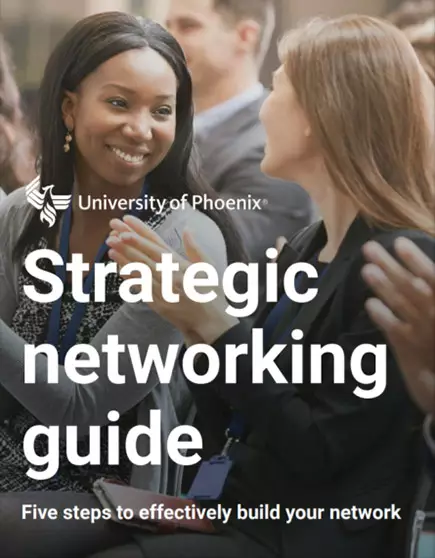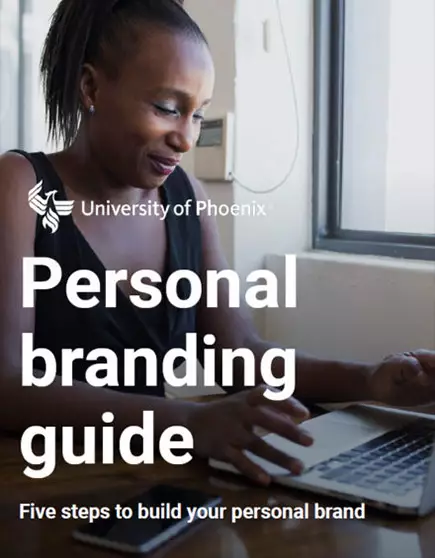5 ways to seriously "mom" from the C-suite
By Elizabeth Exline
When you first meet Tracie Morris, you might not immediately guess she is a mom to three adult children. Or that she is a yoga instructor. Or even that she is the chief human resources officer for BMO Financial Group. But if her energetic persona belies these things, a conversation quickly reveals them. Morris exudes a steady thoughtfulness indicative of an effective C-suite mom. She considers every comment or question before replying; she hears others out. So, it doesn’t take long to realize that, beneath her inherent likeability, there’s mettle you shouldn’t underestimate.
Women in the C-suite
 Tracie Morris, chief human resources officer for BMO Financial Group.
Tracie Morris, chief human resources officer for BMO Financial Group.
And she’s not alone. Morris is part of the 28% of C-suite executives who are women. This is a group that is asked daily to choose between work and family or between themselves and their professional goals.
While these might be unenviable choices, being both a woman and a mom in the C-suite also brings certain advantages. These include time-management skills and the ability to multitask, as well as more nuanced abilities like including everyone at the table or actively listening and understanding before speaking.
"We can get so much into business that we lose empathy," Morris points out. "In my role, I just want to make sure everyone’s heard, and that really helps with [managing] conflict."
Morris achieves this in a number of ways. She joined BMO Financial Group two-and-a-half years ago because she was uniquely qualified to meet objectives like "building a winning culture" and fostering career development as well as hiring from the community, partnering with nonprofits to "build the pipeline" and improving diversity, equity and inclusion (DEI).
To date, Morris’ accomplishments include a variety of initiatives that support her Zero Barriers to Inclusion strategy at her organization.
These initiatives include a program that pairs more than 25 women and people of color with executives and directors for mentoring, sponsorship and career development.
They also include community investment. Morris partnered with internal and external leaders to give $10 million to the United Way of Metro Chicago to promote community development, $10 million to cultivate sustainable opportunities among residents and communities in Austin and $10 million to Rush Hospitals during the pandemic for programs targeting women and people of color.
Morris’ other major initiative has been to develop and lead what she calls "Bold Conversations for Colleagues, Customers and Communities." These discussions offer a forum where diverse business leaders can discuss their challenges and receive assistance, where civic leaders can speak about racial injustice and how to be an effective leader and where residents can learn about homeownership, credit and career management.
Finding success at work and at home
Accomplishments like these underscore Morris’ other victories, too — the ones you don’t read about in press releases. Case in point: When reviewing the plans for BMO’s new office complex, Morris saw the sort of amenities that appeal to a modern workforce (hello, yoga room). But she also recognized that certain features female employees actually needed were missing.
"I was like, ‘Where’s the mother’s room?’" she recalls. She received blank stares in return and promptly incorporated three women into the planning committee. The result? Fresh ideas on landscaping, eco-friendly features, creative ideas around wellness and, yes, amenities that answer women’s unique needs (think expectant-parent parking and those once-missing mothers’ rooms).
How to be a C-suite mom
At home, Morris enjoys success of a different sort. Having worked her way up the corporate ladder while her children were young, Morris today finds herself in awe of their accomplishments. When she said as much to her eldest daughter, who works full-time, teaches part-time and is contemplating starting a family of her own, her daughter turned the spotlight back on Morris.
"She said, ‘The reason I’m successful is [because] you taught me to love me first,’" Morris recounts.
It was a pivotal moment for Morris, who reflected on her life, her choices and her approach to finding the right balance between the many competing needs C-suite moms face. Here, she shares five ways everyone can use parenthood and professional ambition to her (or his) advantage.
5 ways to boss like a parent
1. Communicate your needs
If the pandemic taught us anything, Morris says, it’s that women can’t do it all. Caring for aging parents, young children, or careers — or all of the above — may be doable in the short term, but it’s not sustainable long term. The solution? Figure out what you need and share that with others who can help
That can look many different ways. When Morris was going through a divorce in the early 2000s, she didn’t initially want to share that with anyone. "What I had to learn was to communicate and ask for help. I remember my boss said, ‘So, do you want to pause your career?’"
It was a well-intentioned question but completely off the mark for a woman facing a future in which she would need to support herself and her family. It did, however, clarify one important lesson: Unless you tell people what you want and need, they might give you the wrong thing (or nothing at all).
2. Ask others for help
The other part of communication is asking for help, which can admittedly feel challenging for some.
"It’s about not feeling like a burden," Morris explains.
Because asking for something can create a feeling of indebtedness, Morris suggests balancing the request with an offer to return the favor. If you need babysitting one day, she says, you can offer to do the school drop-off the next day or host a weekend playdate for the kids instead.
At work, asking for help can feel like a career-killing weakness. Morris, however, thinks otherwise.
During the pandemic, some employees reached out to Morris to say they simply couldn’t take on more projects. So, Morris implemented a program across 127 groups where the people who needed help became the coaches on projects, and the people who were comfortable taking on more work became the mentees.
The results were profound, Morris says. New leaders emerged, and some people even discovered new passions and pursued different career paths within the organization. It was, in other words, a win-win.
3. Accept that imbalance happens
This is the real-world version of "Give yourself grace." There is no perfect balance. There isn’t even a fine balance. There’s just a constantly shifting balance that sometimes favors work and sometimes favors family. "Sometimes work does come first, and you can’t feel guilty about it," Morris says.
Morris has found certain boundaries do help. She never takes calls during dinner, for example. And when her son was young, Morris took him to school every morning so they could spend time together, even though that meant she started work half an hour later than her colleagues. "My work and my life have to fit," she says.
4. Manage your mental health
According to the Career Optimism Index , a national survey helmed by University of Phoenix, more moms (39%) have sought mental health resources to help manage work-related stress compared to the general population (33%).
Getting help is a good thing, but it can be intimidating. Morris discovered this first-hand when facilitating group calls during the pandemic. During those calls, plenty of people listened in, but very few participated. When her company offered access to one-on-one mental health services via a customized app, however, participation skyrocketed.
"There’s something very powerful that happens when talking one-on-one with a health professional," Morris says.
5. Take time for yourself
Between the demands of work and home, there’s maybe the commute back and forth when moms can find a little breather. And for those working from home, not even that exists. So, while it might not feel like there’s any time left for that walk or book or evening with a friend, take it anyway.
Morris takes a morning walk alone every day and another walk after dinner. On weekends, she spends at least 30 minutes reading or relaxing.
Career advice 101
 Ricklyn Woods, a career advisor at University of Phoenix.
Ricklyn Woods, a career advisor at University of Phoenix.
No matter where your career takes you — a corner office, a courtroom, a construction site — working mothers can all benefit from a few key pieces of career advice. Here, Ricklyn Woods, a career advisor at University of Phoenix and a mom herself, weighs in on what every working mom needs to know.
Q: What mindset should working mothers adopt to position themselves for success at work and at home?
A: I think it is important for working mothers to adopt an "I am enough" mindset. So often, working mothers experience feelings of guilt and inadequacy when they are trying to balance their responsibilities as a parent and employee. We feel pressure to try to be everything to everybody.
The reality is you simply cannot be everything to everybody. Oftentimes, this feeling to please everybody is self-inflicted. No one has actually put this demand on us. But because we fear how others might perceive us if we don’t meet their expectations of us, we deplete ourselves trying to live up to an expectation that has never actually been set.
Q: How can you advantageously leverage your experience as a mother in a professional setting?
A: Being a mother is probably one of the most rewarding and challenging jobs out there. Because of this, mothers are equipped with some of the most in-demand soft skills such as leadership, creative problem solving and innovation, communication, active listening, time management and emotional intelligence.
Every mother I know, including myself, has led projects such as orchestrating a big move, figuring out how to turn random ingredients into a tasty and nutritious meal, managing multiple schedules and meeting deadlines. Probably most important of all, they have had to perceive, evaluate and respond to their own emotions and the emotions of others.
Q: Working moms have to juggle a lot. How can they effectively respond to employers or colleagues who question their commitment to their work?
A: Working moms should unapologetically honor their commitment to their families. Instead of saying, "I’m sorry, I won’t be able to make it to work today because my child is ill," say, "I will be taking today off because my child is ill." Period. No apology or further explanation needed.
Q: What is the best piece of time-management advice you can offer working mothers?
A: Though your family and career are both important, neither will thrive if you are not the best version of yourself. Make self-care a priority over everything else, including your family and career, because you cannot pour from an empty cup.
For many busy working mothers, nothing will happen if it’s not on your calendar. So, plan your self-care in advance the same way you would any other meeting or commitment. Create a meeting invite and block your calendar for the time that you will commit to exercise, meal planning, rest and relaxation.
Q: For mothers who want to pursue leadership roles at work, how do they know when an opportunity is worth it, and what should they do to prepare for it?
A: Leading a team is much like parenting in that you will have people under your leadership who will look to you for guidance, support and direction. Before pursuing leadership roles at work, you should ask yourself if you are ready to be responsible for the growth and development of those under your leadership.
You will know the opportunity is worth it if the organization is transparent and truly in support of people bringing their whole selves to work and if they support working parents in general.
Recommended resources for working moms
There’s a reason parenting takes a village. Woods recommends expanding yours with the following resources:
Books
- Unapologetically Ambitious: Take Risks, Break Barriers and Create Success on Your Own Terms by Shellye Archambeau
- Lean In: Women, Work and the Will to Lead by Sheryl Sandberg
- How Women Rise: Break the 12 Habits Holding You Back from Your Next Raise, Promotion or Job by Marshall Goldsmith and Sally Helgesen
- Betting on You: How to Put Yourself First and (Finally) Take Control of Your Career by Laurie Ruettimann
- Own Your Career, Own Your Life: Stop Drifting and Take Control of Your Future by Andy Storch
Websites
All resources and recommendations are the opinion of Ricklyn Woods and are not affiliated with University of Phoenix.
How to get your career off the ground
Success begins with preparation. The University of Phoenix Career Services team created 6 guides to help you build the right foundation for your future. Click on the images below to download our step-by-step guides.
By the numbers: Women in the workforce
While some may look at the percentage of women in the C-suite and see it as an opportunity for growth, others might see it as a success story. The numbers, in other words, don’t lie — but the perspective can depend on who’s looking at the data.
So, in the spirit of providing that data, University of Phoenix commissioned a Harris Poll survey of 927 employed adults on their views about gender equality in the workplace. Here are the key takeaways:
- The good news: 41% of working adults feel things have gotten easier for women in the workforce when it comes to becoming top company executives.
- The bad news: 52% of employed adults, however, don’t think women’s ideas currently get the same level of consideration as men’s ideas.
- The conflicted news: 62% of employed adults believe female leaders have to work harder than male leaders to prove themselves. (And within this, there is a significant disparity: 68% of women believe this while just 56% of men do.)
- The real news: Theory aside, when asked to consider the reality of their workplaces, most working adults say more men take on high-profile responsibilities than women. Of the surveyed adults, for example, 46% saw men taking the lead on new projects as opposed to 28% seeing that role filled by a woman.
If Morris’ work in human resources inspires you, learn more about how you can launch your own career with a Bachelor of Science in Business with a Human Resource Management Certificate.


















